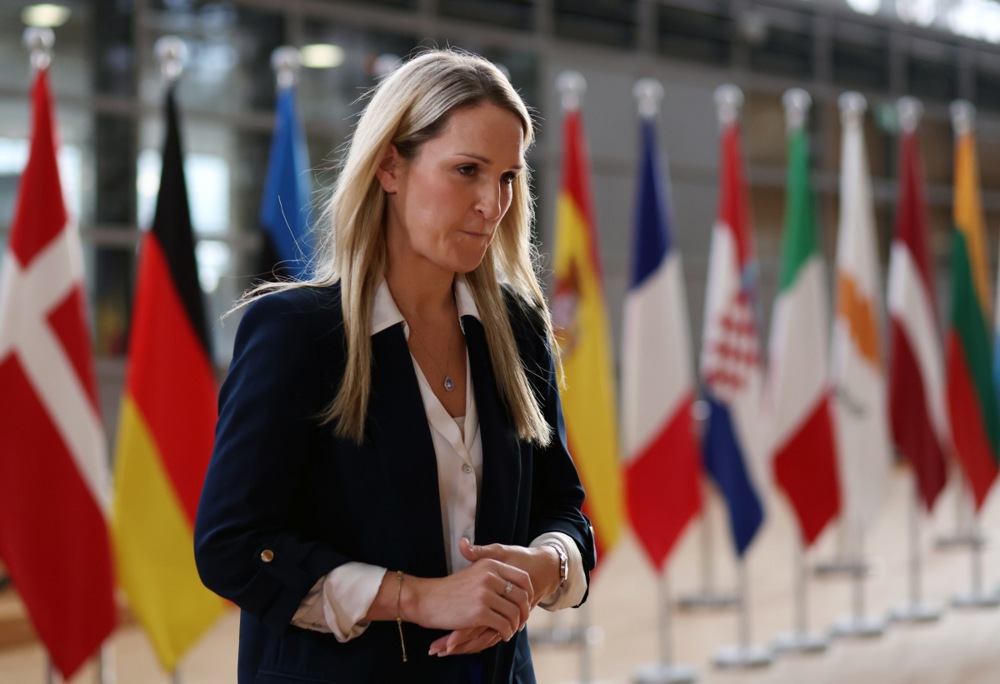Barclays, Britain’s biggest lender to the oil and gas industry, said it will stop direct financing of new oil- and gasfields and restrict lending “more broadly” to energy companies expanding fossil fuel production.
The move, part of its Transition Finance Framework (TFF), published on February 9, follows intense pressure from campaigners over its energy policy amid an increase in climate-damaging emissions from the burning of fossil fuels.
In addition, from 2025, the bank will curb broader financing to non-diversified companies such as what are termed “pure-play exploration companies” – if more than 10 per cent of their expenditure goes toward expanding production over the longer term.
Barclays’ group head of sustainability Laura Barlow said the new policy was part of its “commitment” to reduce emissions linked to the bank’s lending and bolster finance to “greener” alternatives.
“It’s about strengthening our focus on the energy transition,” Barlow said.
Barlow said existing upstream energy clients that breach the 10 per cent threshold would go through an “enhanced oversight process” that also looked at the client’s investment in decarbonisation.
“It wouldn’t be a red line but … would inform our risk appetite,” Barlow said.
Barclays joins banks such as HSBC and BNP Paribas that are trumpeting their moves to apparently tighten oil and gas lending. That comes as they are also pledging to increase funding to areas such as renewable energy that can help cap global warming, targeting $1 trillion (€930 billion) in such lending by 2030.
Non-profit London-based ShareAction, which had pressured Barclays to do more to help tackle climate change, said that in response to the new curbs it had withdrawn a proposed shareholder resolution calling for the bank to stop funding new expansion projects.
Such project finance curbs are not expected to have a major impact on its business given its limited market share, according to observers.
The bank is not in the top 15 of major project finance lenders globally and most of those have yet to adopt similar restrictions.
Jeanne Martin, ShareAction’s head of banking standards, said the move to limit finance to expansion projects and set climate tests for all clients was “good to see”.
The charity company, founded on 2005, said it still had “concerns”, including regarding the Barclay’s funding of fracking – a method used to extract natural gas and oil from deep rock formations known as “shale”.
“We have outstanding concerns … so have made clear to the bank that we will be scrutinising the way it implements its fossil fuel policy and will not hesitate to escalate our engagement again should we be dissatisfied with … progress,” she said.
Senior Portfolio Manager David Orr of Danish investor Sparinvest, which had backed the resolution, said Barclays’ policy “introduces significant new commitments” but urged “further steps, for example on short-lead time assets”.
Katharina Lindmeier, senior “responsible investment manager” at UK pension investor Nest, called it a “strong step forward” but said the bank “could and should” go further”, including regarding fracking.
Barclays was the biggest funder of fossil fuels in Europe between 2016 and 2022 and the second-biggest in through 2022, a report by the non-profit Rainforest Action Network showed, although most of backing came from corporate lending rather than project finance.
Barlow said the bank’s oil and gas on-balance sheet financing as a percentage of its total lending activities was less than 2 per cent, with capital markets financing for the sector less than 3 per cent of total activity.
Emissions linked to Barclays’ lending to the energy sector dropped 32 per cent between 2020 and 2022, beating a target reduction of 15 per cent, the bank said in its 2022 annual report.
Additional restrictions introduced by Barclays include “no financing” for exploration and production in the Amazon. In addition, from June 2024, no financing to firms that get more than 20 per ent of their production from “unconventional” sources such as oil sands – a mixture of sand, water, clay and a type of oil called bitumen.
All Barclays’ corporate clients in the energy sector will be expected to present “transition plans or decarbonisation strategies” by January 2025, alongside 2030 methane reduction targets. It includes a “commitment” to end all non-essential venting and flaring – when oil and/or gasfield operators opt to burn the “associated” gas that accompanies production – by 2030.
The clients would also need to have near-term net-zero aligned targets for Scope 1 and 2 emissions – those linked to their own operations and energy usage – by January 2026.
Barclays’ head of sustainable finance, corporate and investment bank Daniel Hanna said the bank looked at more than 80 “variables” when assessing clients’ decarbonisation plans and had committed to review 750 client entities at its last AGM.
In January, Barclays announced the formation of a new energy-transition group to provide “strategic advice” to clients on everything from renewables to nature-based solutions and carbon capture.




